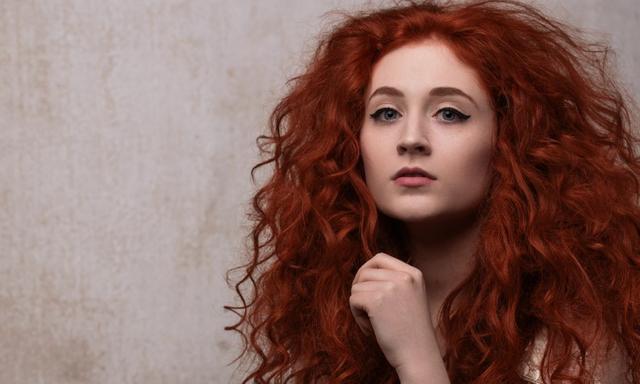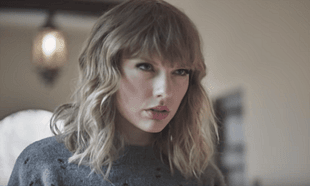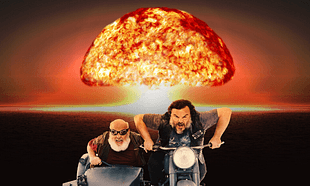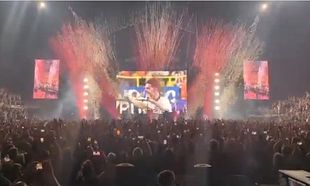She came to prominence as a shy 16-year-old on the eighth series of The X Factor, but Janet Devlin has been plugging away at her craft in the intervening years and is about the release her second album, 'Confessional.'
The Northern Irish musician, who has spent the last few years building a loyal online fanbase via her vlogging and regular online gigs (even before the coronavirus), has also been through a hell of a lot.
As the title of 'Confessional' – and its companion book 'My Confessional', which explains the origin, inspiration and background behind each song – suggests, Devlin has battled numerous demons over the years – from alcoholism, to mental health issues to eating disorders.
We recently had a chat with the now-25-year-old to find out what she's been up to since The X Factor, and more about 'Confessional'.
Hi, Janet! First off, how are you coping with this whole coronavirus madness?
It's a mixed bag. I'm coping grand, in the sense of knowing everybody's in the same boat... but y'know... never more than now have I been so grateful to have a therapist. (laughs) It's been a hard place for not just me, but people with the same kind of mental health issues as I have, fellow addicts and alcoholics and stuff, who go to meetings. So hopefully it passes soon.
A lot of your career is based online – has it impacted that negatively in any way?
It's affected my career in the sense that my Patreon has been affected. I have a Patreon for making YouTube content and obviously people are unsubscribing or reducing tiers, so it's my wages going down – but obviously that's because my job directly correlates to the disposable income of people. But as far as a lot of my job goes, there's nothing changed. I was actually getting excited, because this was supposed to have been the time where I'd be doing live shows, which I can't do anymore. So it's a bit sad, in the sense that I've had to cancel my 'real life' gigs, which are always few and far between – but as far as the online shows go, that's still the same, and I'm still posting YouTube videos, still doing the online gigs. And I've got more of an excuse to reply to even more comments and that sort of thing.
Let's rewind a little to your previous life as an X Factor hopeful. Do you remember sending in the audition tape?
It was actually my mum who sent in a video. I was doing YouTube covers and my mum decided to send in one of them. When she told me, she said 'Well, what's there to lose? What's the worst thing – they say 'no' and your life is the same as it always is?' So I said 'Fair enough'. I had toyed with the idea of taking a year out anyway before going back to my schoolwork, so it kind of fit in with the plan I was already going with. I just didn't see it being as successful as it was.
Looking back now with a sense of perspective, how did you find the whole experience?
As far as my addictive behaviours and self-hatred and all those kinds of things that are a part of me go, they were definitely there well, well before the TV. I had started acting out on addictive behaviours as early as 12. So I really had a bit of a messed-up brain before television even happened – which I have no control over, and I just accept it for what it is today. I think it's always a weird one for me. I wish I could look at the show and say 'Oh, that was the catalyst for my self-hatred' or my drinking, or anything. Unfortunately it wasn't, it was already very very present in my life and I talk about that in the book. So the show actually gave me the awareness that when I have something to work towards, I don't act out on my addictive behaviour so much. When I had a goal every weekend of performing, I wasn't doing anything self-destructive during the week. So yeah, it taught me that, which has been a very valuable life lesson for myself and my team.
You've established a loyal fanbase as an independent musician, and have outlasted lots of your fellow contestants on the show – what have been the biggest challenges you've faced?
Gosh, there were loads of things that were out of my control. It wasn't easy at all, and I don't blame anybody for giving up on their dream... I got to a point where I had barely £25 a week to live on. I didn't have anywhere to really live; I ended up having to move in with my manager, because I didn't have the money to pay rent. But I had the dream and ambition of pursuing music full-time. So it's a weird one. It'a always been hard; it's still hard. It's still a task to get people to listen to music, or maybe just to listen to my music (laughs). But I'm still at it, and thank god for the people who have followed my career, because I wouldn't be able to do this if it wasn't for them. So I have all the gratitude in the world for them supporting me over the years. But I can't lie and pretend I'm here of my own volition. I could have kept trying, and kept trying, and kept trying – but if it wasn't for people actually investing in my music and in me as a person, I wouldn't be doing it.
Let's talk about your new album, 'Confessional'. Why has it taken so long to follow-up your 2014 debut, 'Running with Scissors'?
Since then, I've had loads of EPs, a few singles, done a few projects with other people. But the reason it took so long is that I think the fact that [the new one] is so personal. I obviously had to write a book to accompany it, so that added a year or two on the project. The fact that it's a concept record added years on to the project... because I had to write multiple songs for every topic – and you'd need a good 'ballad' version of a topic, a good 'middle of the road' version of a topic, a good 'upbeat' version. It was a lot, and it was a challenge – because everything is a metaphor, so you're trying to create a new metaphor that's still relevant. So writing it was really hard, but it was actually worth it.
And also, I had to be in a good place with my recovery – not just my alcoholism, but the other things that I've had going on in my life, because unfortunately, alcoholism isn't where it stops. So I wanted to make sure that I was in a good place and I was comfortable. At the end of the day, it's inevitable that people are going to troll and little bit, and be a bit mean – so I just wanted to be in a position where I would never take in that kind of stuff seriously.
What's the idea behind having the book as a companion to the album?
It's not an autobiography. It's not like I've sat down and gone 'Start to finish, here is my life. Here are the things that I think...' (laughs) Every song is an event or a confession of a sin, or something that happened to me – so for example, 'Away with the Fairies' is a song that you can listen to without the true meaning behind it, and it seems whimsical, and whatever. But that chapter in the book is me is discussing my alcohol abuse. From where the alcoholism started, where it took me, and where I am now.
I wanted this album to be me shedding the skin of my own life, and shedding some light on the reasons why I am the way I am. And some things that other people have done to me in my life that is hard to talk about, and I would rather write it down and get it out there. So it's all that in one space. You don't have to read the book, but for the people who want to listen to the song, read the corresponding chapter and get fully immersed into this weird little world that I've created, it's there for them.
It sounds like a pretty cathartic experience – so what's next?
I'm not gonna be spending six or seven years on the next album, no way; I'm actually looking to sit down and write some bluegrass tracks, a country vibe because I love writing that sort of music. It allows me to almost leave this big massive dark chapter behind, and move on and do whatever I want.
**********
'Confessional' and 'My Confessional' are both released on June 5th.









































































